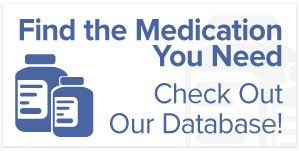Infectious diseases caused by pathogens, such as bacteria, viruses, and parasites, have constantly challenged public health worldwide. Despite advances in medical science and healthcare infrastructure in the US, nearly 23 million people visit the doctor with an infectious disease.
Understanding the risks associated with these diseases and adopting preventive measures is essential for safeguarding individual and public health.
Common Infectious Diseases in the US
While the US has made significant strides in controlling and preventing infectious diseases through vaccination and public health campaigns, certain diseases continue to affect communities. These include:
- Influenza (Flu): Seasonal flu outbreaks affect millions annually. Annual vaccination is recommended to reduce the risk of infection and its complications.
- Sexually Transmitted Infections (STIs): STIs like chlamydia, gonorrhea, and syphilis continue to pose a significant public health challenge. Regular testing, safe sex practices, and open communication with partners are vital.
- Vector-Borne Diseases: Diseases transmitted by vectors like ticks and mosquitoes, such as Lyme disease and West Nile virus, require vigilance in endemic areas. Using insect repellent and wearing protective clothing can reduce exposure.

Understanding Risks and Vulnerabilities
Certain populations are more vulnerable to infectious diseases due to factors such as age, underlying health conditions, and social determinants. Children, the elderly, pregnant women, and individuals with weakened immune systems are at higher risk of severe outcomes from infectious diseases. Low-income communities may face barriers to accessing healthcare and preventive measures.
Preventive Measures
Preventing infectious diseases requires a multifaceted approach:
- Vaccination: Vaccines are among the most effective tools in preventing infectious diseases. Staying updated with recommended vaccinations is crucial for individual and community immunity.
- Hygiene: Practicing good hygiene, including regular handwashing with soap and water, reduces the risk of spreading infections.
- Safe Sex: Consistent and correct use of condoms and regular STI testing is essential for preventing the spread of STIs.
- Vector Control: Reducing exposure to disease-carrying vectors involves using insect repellents, eliminating breeding sites, and using protective clothing.
- Travel Precautions: International travelers should research destination-specific health risks and take necessary precautions, such as vaccinations and preventive medications.
- Public Health Measures: Following public health guidelines during outbreaks, such as quarantines and isolation, helps control the spread of infectious diseases.
- Community Engagement: Public education campaigns and community involvement play a vital role in raising awareness and promoting preventive measures.
Get Timely Rx Assistance in Boynton Beach for Infectious Diseases
Are you an uninsured or underinsured person looking for medication to tackle an infectious disease? The Rx Helper is a patient assistance organization where we can help you access affordable medication. We do this by facilitating your enrollment in US-based prescription assistance programs for a flat and affordable monthly fee.
So, what are you waiting for? Enroll on our platform today to access all relevant prescription assistance programs. You can also get in touch with us now for more information.



